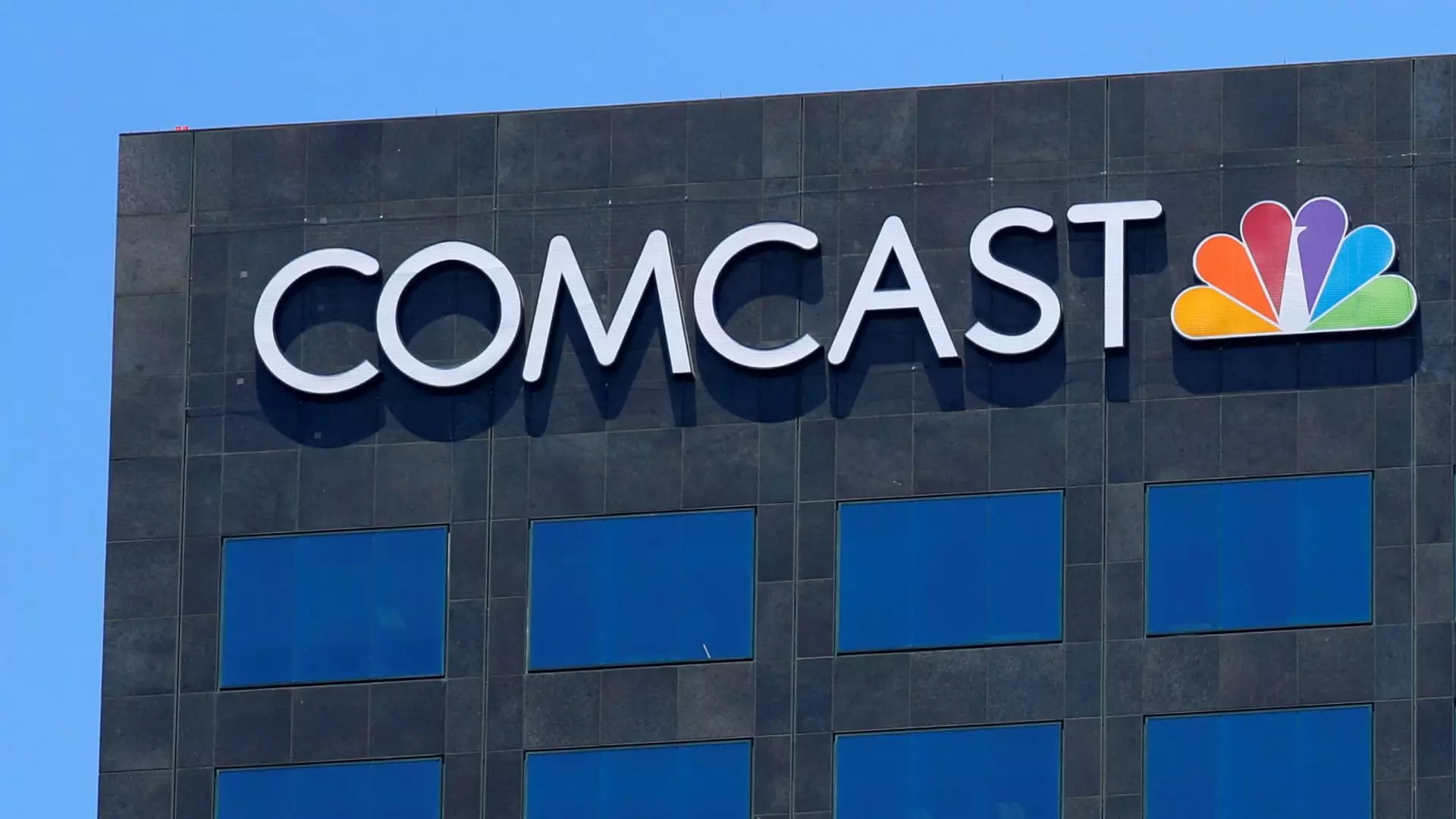In a significant strategic maneuver, Comcast has unveiled its intentions to spin off its cable network channels. This decision, confirmed by sources speaking to CNBC, marks a pivotal moment in the media giant’s evolution amidst a rapidly transforming landscape where traditional television is increasingly challenged by streaming services. Expected to unfold over the next year, this separation is not merely a matter of restructuring but a repositioning of Comcast’s resources and capabilities to align with contemporary viewer preferences and market demands.
The newly established entity will reportedly be helmed by Mark Lazarus, the current chairman of NBCUniversal’s media group. This development is indicative of Comcast’s commitment to ensuring that the spinoff is driven by experienced leadership familiar with the intricacies of the media landscape. Alongside Lazarus, Anand Kini, NBCUniversal’s Chief Financial Officer, will assume the role of CFO and operating chief for this independent operation. The roles designated to these individuals signal a calculated move toward sustained growth potential in a competitive arena.
While this spinoff is set to function independently, Comcast’s chairman and CEO, Brian Roberts, will retain a voting position within the new entity, albeit stepping back from executive duties and board responsibilities. This structure suggests a balance between ongoing governance and the autonomy that the new company will require to thrive. With the industry shifting its focus, the separation empowers the cable networks to explore mergers or even private equity sales, underscoring the potential for a robust market presence.
The new operational framework extends beyond just the leadership of the spinoff. Key figures within NBCUniversal will also see changes in their roles, ensuring that the content and managerial expertise remains within the Comcast family. Notably, Donna Langley will advance to chair NBCUniversal Entertainment and Studios, while Matt Strauss will oversee NBCUniversal Media Group, ensuring a concentrated focus on sports, ad sales, and distribution, which are vital components of their broadcasting strategy.
The impetus behind this significant restructuring is multifaceted, prominently leaning on the declining subscriptions to traditional pay TV. As millions of consumers gravitate towards streaming platforms, the necessity for media companies to adapt becomes unequivocally clear. Comcast has been keen to bolster its streaming platform, Peacock, positioning it to compete effectively against industry giants like Netflix and Disney+.
This transition reflects not only a response to cord-cutting trends but also a strategic pivot within a shifting entertainment ecosystem. The substantial revenue reported during Comcast’s Q3 earnings—that’s up nearly 37% to $8.23 billion—reinforces the enduring profitability of television networks, even in a challenging marketplace. It is noteworthy to mention that these numbers were boosted significantly by the Olympics, which reminds us of the cyclical nature of media revenues.
However, without mega-events like the Summer Games, Comcast’s media revenue growth slipped to a modest 5%. This indicates that while traditional television remains lucrative, the long-term viability hinges on a transformative strategy that accommodates emerging viewing habits and modern viewer preferences.
As Comcast embarks on this journey of spinoff implementation over the next year, several logistical hurdles will need to be addressed. Potential licensing agreements must be navigated, particularly concerning networks like MSNBC and CNBC in relation to NBC News. The absence of formal discussions at this stage suggests there may be complexities lying ahead that could complicate the operational independence of the new entity.
This initiative, first reported by The Wall Street Journal, is more than just a case of corporate restructuring; it’s a reflection of how established entities must re-evaluate and reinvent themselves in response to the ever-present threat of disruption. As the industry reconciles the coexistence of traditional and digital platforms, Comcast’s spinoff could serve as a blueprint for other media companies contemplating similar strategies to navigate the current transitional period within the entertainment sector.
The spinoff of Comcast’s cable networks signifies a proactive adaptation to marketplace realities, aimed at preserving viability while unleashing further growth potential in an increasingly digital entertainment landscape.

